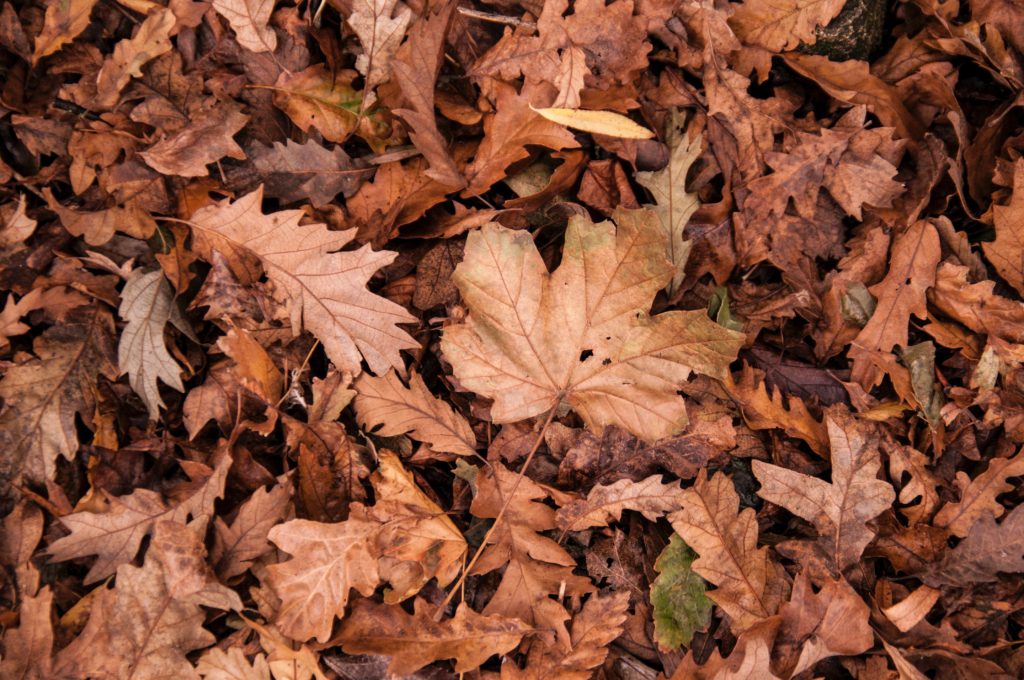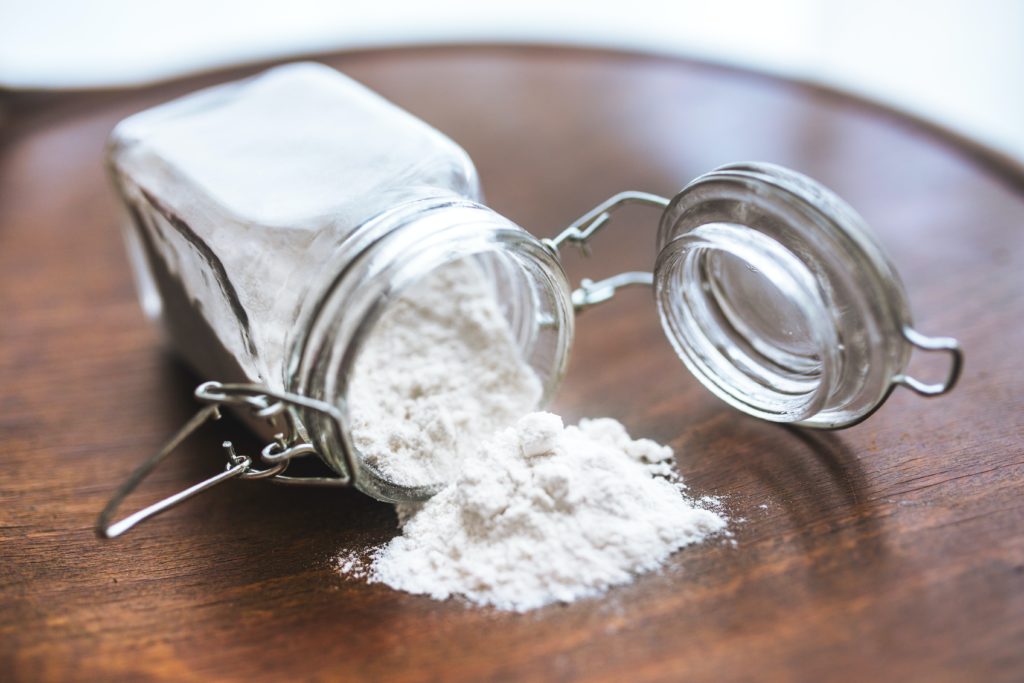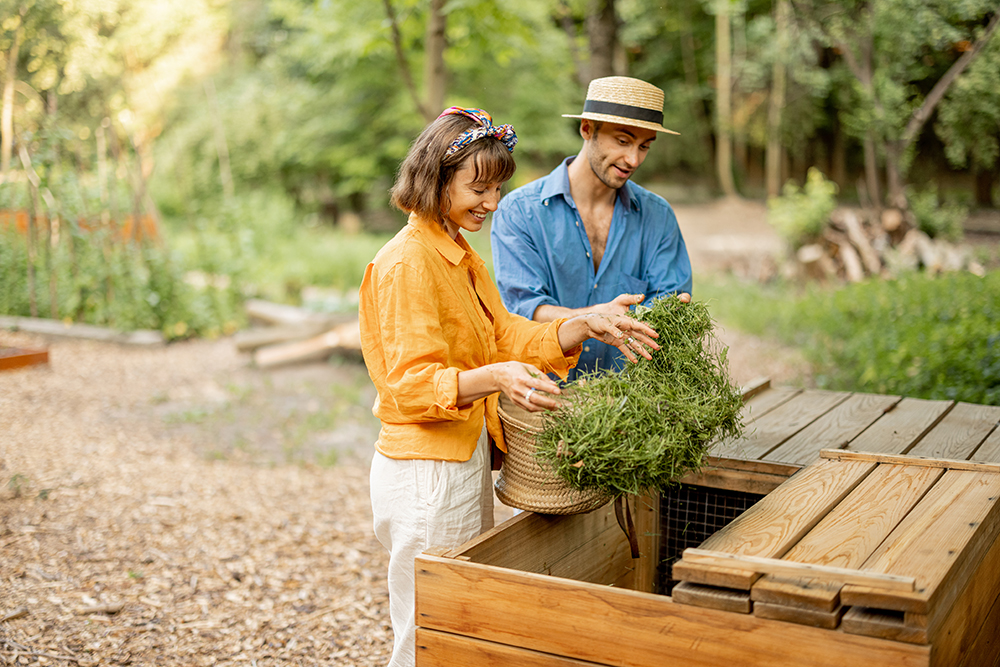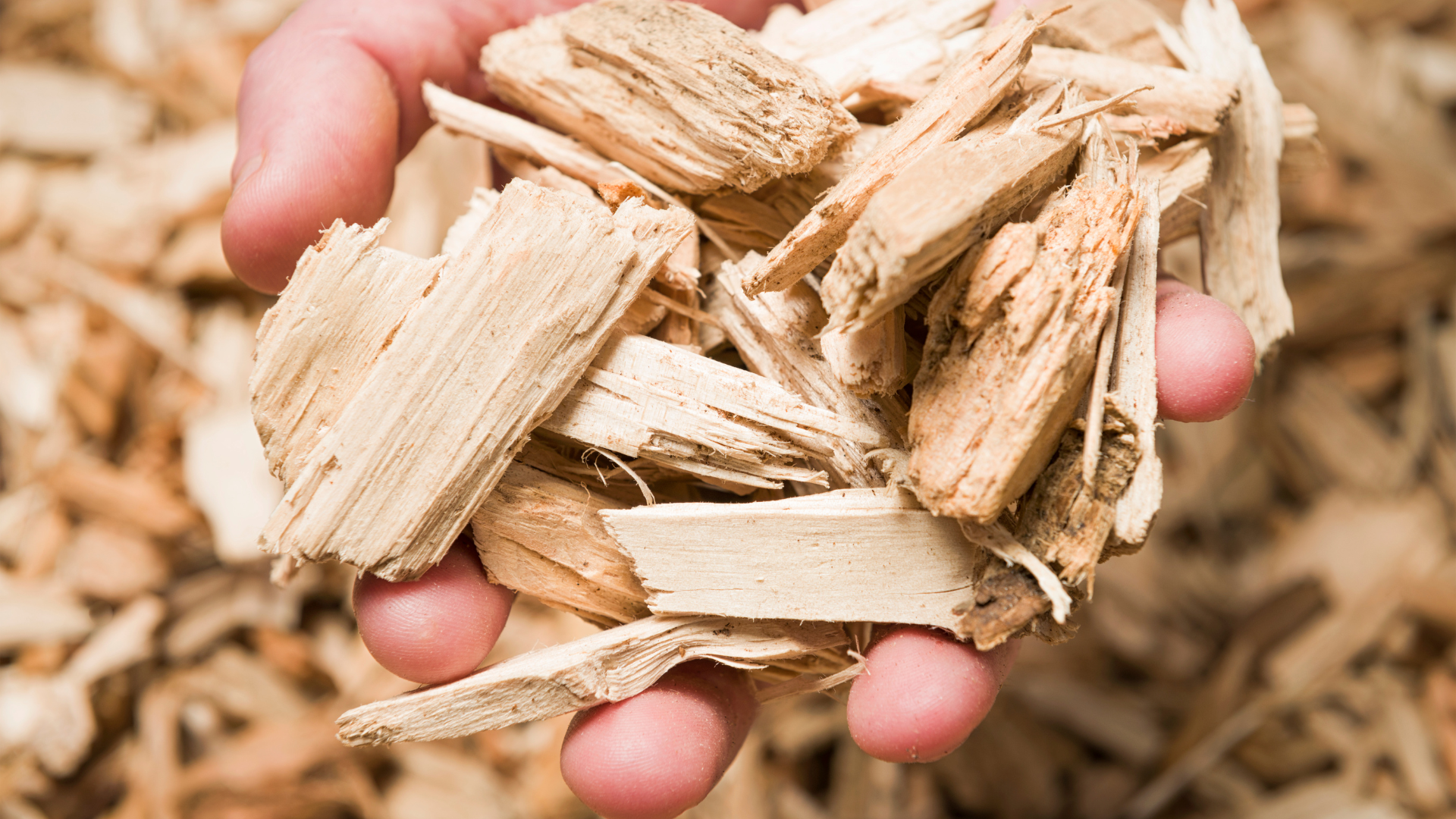Add More Brown Material.
One way to reduce compost odor is to add more brown stuff to maintain a healthier carbon to nitrogen balance. Green things, like leaves, grass, and vegetable scraps increase the nitrogen content of your compost bin, while brown stuff is rich in carbon. Adding more carbon helps maintain a healthier nitrogen to carbon ratio. Too much nitrogen creates an ammonia scent.
Brown stuff includes dead wood, leaves, and other carbon-rich substances that you find in the wild. This includes dried-out leaves, sticks, twigs, pinecones, pine needles (if you live in a needle-leaf forest), old hay or straw, corn stalks, dried grass clippings, sawdust from untreated wood, and paper towels and/or toilet paper rolls.
One thing you should never do is throw in materials like plastic or foil. These materials have waterproof coatings, which means they won’t break down like other pieces of garbage and will just sit there releasing their odor into your bin.
Mix Frequently.
One of the most common questions new composters have is, “Why does my compost smell bad?” The answer is usually, “because you didn’t mix it enough”. What’s happening when your compost stinks is that microorganisms are working to decompose all the trash inside. These microorganisms create heat, and as a result, your compost will start to smell like rotting food or worse, like poop. But there’s an easy solution: mixing it up.
Mixing your compost will help keep temperatures down and encourage those helpful microorganisms to do their job faster. It also gets air circulating so that oxygen can reach every part of the pile–this ensures those microbes get healthy and hungry for more trash in your bin.
Mixing doesn’t mean just stirring the top layer of material into the bottom layer with a shovel or pitchfork; it means tossing everything around, so all parts are equally mixed together. This helps prevent hot spots where bacteria can grow in one part of the pile and creates clumps of material instead of a nice uniform mixture. If your bin has a lid, take it off at this point, because you’ll want plenty of air circulation while mixing everything up.

Keep It Dry.
There are numerous smells that can waft from a compost bin. These smells manifest when you introduce the wrong combination of wet and dry materials, or if one type dominates the other. For instance, too much food waste will give off an unpleasant odor because it’s high in nitrogen. If you have too many dry leaves and few kitchen scraps, the resulting decomposition process will be slow because there isn’t enough nitrogen to trigger the action of microbes that help break down organic matter and release gases as part of the process.
Therefore, you should add a mix of dry and wet materials each time you add to your compost pile. It’s also helpful to keep a moisture meter on hand, so you’ll know how moist (or not) your pile is, allowing easy adjustments before things get weirdly smelly or slimy down there.
Check For Pet Waste.
In general, it’s a good idea to avoid adding pet waste to your main compost bin. The natural decomposition process is neutral and odorless, but pet waste introduces extra nitrogen into the mix. This can lead to odor problems if you aren’t careful. It also attracts pests like rats that are naturally drawn to animal feces.

Sprinkle Your Compost Bin with Baking Soda
One of the easiest things to do to reduce odor is to sprinkle a few tablespoons of baking soda over your compost every couple of weeks. The chemicals in baking soda help neutralize odors and keep smells under control. If you’re worried about odor control, you can also add essential oils like lavender or cinnamon to your compost bin–these oils work against bacteria that create unpleasant scents and also mask the smell. They’ll also give the area around your bin a pleasant aroma when you open it up.
The Bottom Line
Composting can be a great way to keep garden waste out of the trash. It is quick and requires little extra space, it helps plants grow and it even saves a bit of money. However, composting can also lead to unpleasant smells if not handled properly. By following these guidelines, you can compost in your backyard or on your balcony and keep odors to a minimum.



